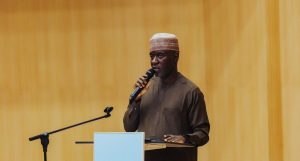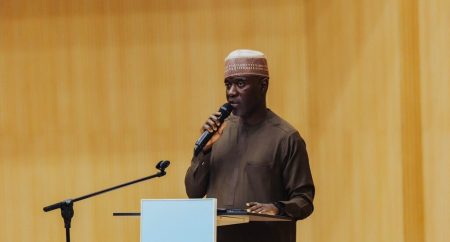The Chief of Defence Staff, Gen. Christopher Musa, has underscored the imperative for Nigerians to perceive the military as an integral partner in national progress, rather than an occupying force alienated from the populace it is mandated to protect. This call to action was made during the inaugural Defence Headquarters Civil-Military Relations Conference held in Abuja, themed “Winning Hearts and Minds: Non-Kinetic Approaches to National Security.” General Musa acknowledged the historically strained relationship between the military and civilians, often marked by suspicion, fear, and mistrust, which has hindered effective collaboration, particularly during crises. He emphasized the necessity of a paradigm shift, urging both the military and the public to actively dismantle this perception and foster a collaborative environment.
The CDS affirmed the Nigerian Armed Forces’ constitutional foundation and democratic accountability to the people, emphasizing that the conference was not a solitary event but a strategic initiative designed as an annual platform for open dialogue, critical analysis, and practical cooperation. The primary objective, he articulated, is to cultivate trust and transition from a predominantly kinetic, force-driven approach to one that prioritizes relationship building, respect for human rights, and community engagement. This entails moving beyond the conventional focus on weaponry and warfare and investing in human security, building resilient communities, and fostering the understanding that every Nigerian, regardless of their affiliation with the military, shares a stake in the nation’s peace and prosperity.
Rear Adm. Olusanya Bankole, Chief of Defence Civil-Military Relations, described the conference as a significant step in the military’s commitment to a “people-centric” approach championed by the CDS. He emphasized the conference’s role in reshaping negative narratives surrounding the Nigerian armed forces and promoting non-kinetic strategies, such as dialogue, outreach, and community engagement, to rebuild trust and strengthen the crucial bond between the military and the civilian population. This initiative signifies a conscious effort to address the root causes of mistrust and foster a more harmonious and collaborative relationship between the military and the citizens they serve.
The conference’s theme, “Winning Hearts and Minds,” encapsulates the essence of this transformative approach. It reflects a recognition that true security extends beyond military might and encompasses the emotional and psychological dimensions of community well-being. By prioritizing non-kinetic strategies, the military aims to foster a sense of belonging and shared responsibility for national security. This involves building bridges of understanding and cooperation, addressing grievances, and promoting a sense of ownership among civilians in the security of their communities.
The emphasis on human security underscores a shift towards addressing the underlying social, economic, and political factors that contribute to insecurity. This holistic approach recognizes that sustainable peace and stability require more than just military intervention. It necessitates addressing issues such as poverty, unemployment, inequality, and access to education and healthcare. By investing in human capital and fostering social cohesion, the military aims to create a more resilient society less susceptible to conflict and instability.
The commitment to community partnership further reinforces the “people-centric” approach. By engaging with local communities, the military seeks to understand their specific needs and concerns, build trust, and foster a sense of shared purpose. This collaborative approach enables the military to tailor its interventions to the unique challenges faced by different communities, maximizing their effectiveness and promoting local ownership of security initiatives. This collaborative framework is crucial for achieving sustainable peace and security, fostering a sense of shared responsibility and ownership within the community.














